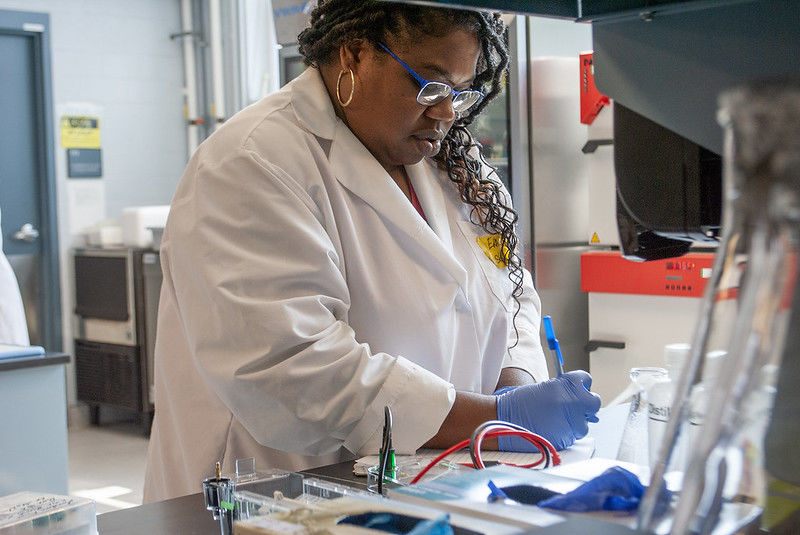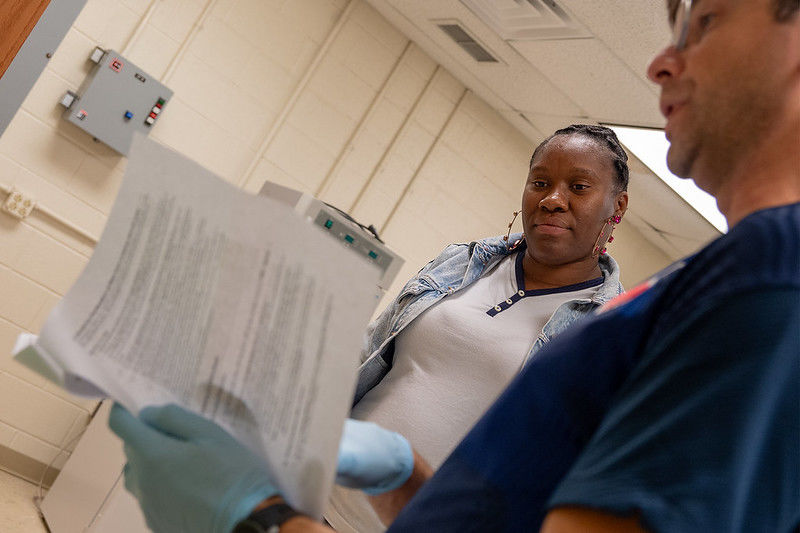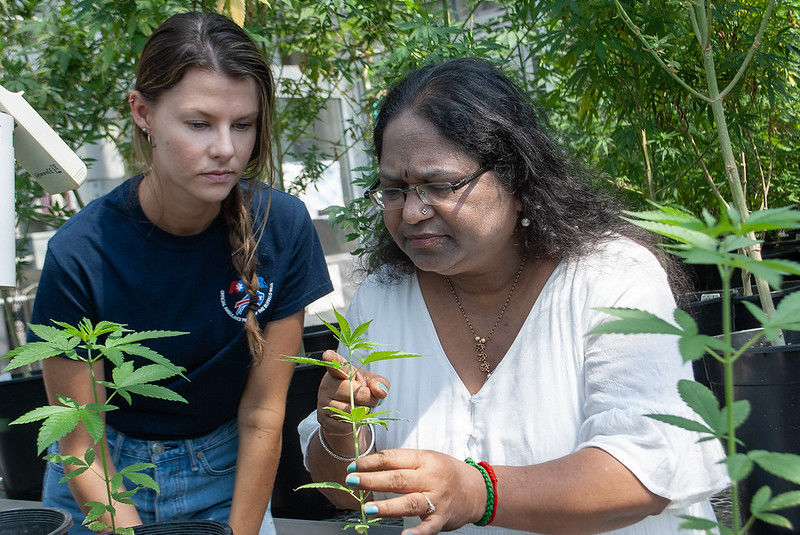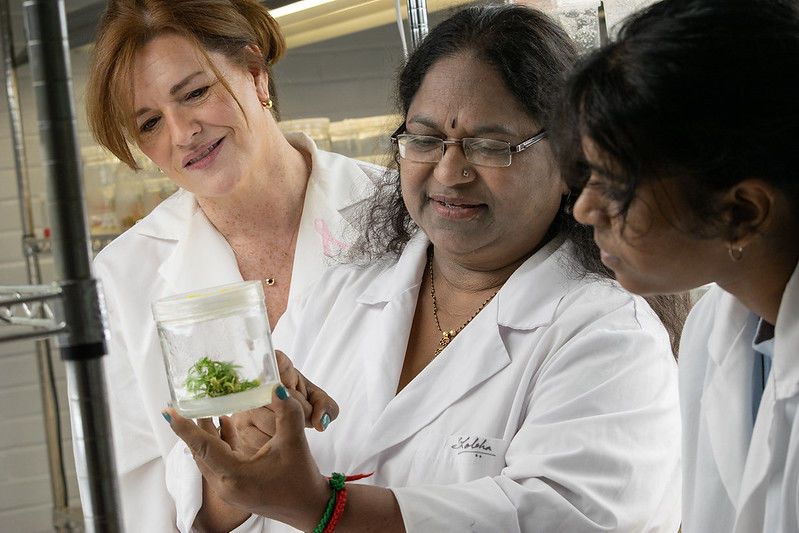Penn State Harrisburg's Synthetic and Systems Biology Research Experience for Teachers (BIORETs) program will support the training of eight K-12 STEM teachers for seven weeks during the summer. BIORETs will provide research training to secondary science teachers in underserved school districts. Participants will conduct research in cutting-edge technologies such as
- CRISPR/Cas9 genome editing
- plant tissue culture and transformation
- bioinformatics
- machine learning
- artificial intelligence based digital platform
Exposing teachers to convergence research empowers them to enhance the existing K-12 STEM curricula with project-based learning activities to engage and retain students in STEM disciplines and create a pipeline for the STEM workforce. These activities can have a transformative impact on society by creating a pathway for minority and underrepresented students to pursue STEM careers to address current challenges in food, health, energy, and climate change.
The goal of the BIORETs program is to utilize the synthetic and systems biology (Syn/SysBio) approaches and tools for their applications in food, health, energy, and the environment (FHEE). The program will immerse teachers in an ongoing, authentic, Syn/SysBio-focused convergence research as well as inspire and support teachers in developing and implementing practice-based curriculum for secondary classrooms.
The proposed innovative STEM research experiences focus on basic research to:
- enhance the yield, nutritional quality and improving disease resistance in crops
- apply gene editing techniques to industrial hemp and other crops using CRISPR/Cas9
- remediate abandoned mine land soils while capturing greenhouse gases
- treat drug resistant infections with plant-derived antibiotics
- utilize machine learning for plant monitoring
Mentors include faculty and staff from Penn State’s Biological Sciences and Engineering departments and the Center for Science and the Schools (CSATS). Teachers are selected by mentors based on submitted resume and the NSF ETAP application. Priority will be given to teachers who teach in school districts with at least 50% underserved populations.
More information about the program is available by contacting the PI (Dr. Sairam Rudrabhatla, [email protected]) or the co-PI (Dr. Kathy Hill, [email protected]).





